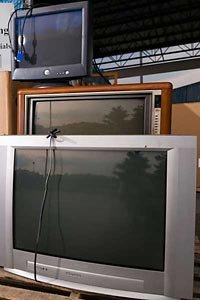Electronic Waste and Demolition
You may find electronic items in residential properties awaiting demolition. Electronic items such as cell phones, computers, computer equipment, televisions, etc, may contains hazardous substances such as:
- Beryllium
- Brominated flame retardants
- Cadmium
- Chromium
- Lead
- Mercury
- Nickel
- Zinc

Older televisions and computer monitors with cathode ray tubes contain an average of four pounds of lead and may require special handling.
- Electronics Donation and Recycling
- Where can I donate or recycle my old computer and other electronic products? - Many organizations accept electronics for reuse.
- Some states have specific laws and policies governing the recycling of electronics.
- Check with your local solid waste management district office to identify management options such as drop off locations or collection events.Your local household hazardous waste facility may accept residential electronics.
- Electronics manufacturers and retailers may have collection programs in your area.
- You can use the Disaster Debris Recovery Tool to locate recyclers and other waste management facilities.
- Certified Electronics Recyclers - EPA encourages debris managers to choose certified recyclers. These recyclers have demonstrated to an accredited, independent third-party auditor that they meet specific standards to safely recycle and manage electronics. Currently, two accredited certification standards exist:
- The Responsible Recycling Practices (R2)
- The e-Stewards® standards.
